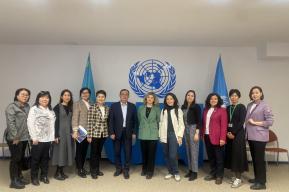Article
Strengthening Social and Emotional Learning in Hybrid Modes of Education

A UNESCO-IBE Discussion Paper
Social- Emotional-Learning (SEL), a relatively new term but a deeply rooted aspect of education, is gaining recognition globally. Defined as the process through which individuals manage emotions, empathize, build relationships, and make responsible decisions, SEL is increasingly seen as a core element of education. In a world facing health crises, wars, and environmental disasters, SEL emerges not only as a healing tool for pandemic-induced trauma but also as essential for addressing persistent challenges in education. However, despite SEL’s increasing global recognition, it is often absent from formal curricula, prompting UNESCO-IBE to address this gap.
Produced in collaboration with the network Networking to Integrate SDG 4.7 and SEL Skills into Education Materials (NISSEM), this Discussion Paper delves into the pivotal role of SEL in global educational transformation, particularly in the post-COVID-19 era, aiming to magnify its impact on social, economic, environmental, and personal dimensions. This shift recognized the holistic needs of learners, teachers, and families, emphasizing competencies beyond traditional knowledge acquisition.
Experts from diverse professional roles and academic disciplines related to education contribute perspectives, focusing on socio-emotional and hybrid learning evolution across regions through case-based analysis. It highlights six key topics, presenting a variety of experiences in integrating SEL into curriculum.
The report aims to inspire global change-makers, advocating for robust policies aligned with UNESCO's Futures of Education framework. This call to action supports UNESCO-IBE's HELA initiative, promoting flexible hybrid learning models for crisis response and sustainable educational strategies in line with the vision of the UN Transforming Education Summit.






